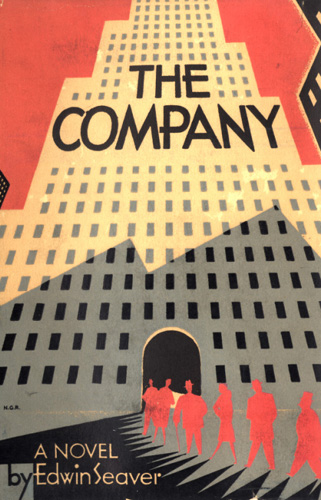


"The proletarian novel in the U.S., in the present stage of revolutionary crisis, cannot be defined in terms of aesthetics, or in terms of characters or subject matter. It can be defined only in terms of history and of political philosophy: the materialist dialectic, recognition of the class struggle, acceptance of the historic role of the proletariat in the formation of a new and socialist society. It is not only the class alignment of the novelist that must be considered, not only his acceptance and use of the Marxian interpretation in his work, but the revolutionary purpose of his work, his aim not merely to understand the world and not merely to explain it, but to change it" (Edwin Seaver, "What Is a Proletarian Novel? Notes toward a Definition," Partisan Review 2, no. 7 [April/May 1935], 8).
239 West 13 street
New York city
Nov. 30, 1936
Dear Hicks,
Long ago I wrote you mentioning a book I had begun, a strike novel. You may not remember, but you even gave me advice on which of two procedures in writing it to adopt. One was to treat the reactions of the bourgeois community to the strike, the other to have characters of both classes. You advised the second plan, and here you see the result. (That is, I trust it is 'there' by this time-I have asked Hillman-Curl to mail you a copy).
Publication date is still far off, but we-the publishers and I-are hoping it will bring in a few blurbs for the jacket. You may, of course, not like the work; I wish in any case you would take the time to tell me something of your reaction.
Sincerely,
Clifton Cuthbert
Jan. 10, 1932.
Dear Mr. Hicks,
Thanks for your kind and interested note. Although I think you might be interested in my Ms. (it is now complete and titled, Flushing to Calvary), I feel morally certain that Macmillan would never publish it. The tone is "too unpleasant" and the materials "too depressing" (what with the depression et al) for Macmillan's taste. Saying this, I am still allowing for editorial rejuvenescence and more liberal policies.
Anyway, I'd like you to see, on your own hook, the Ms. some time.
I would have answered you more promptly but moving and pounding out reviews were something of a real obstacle.
Miss Bernice Baumgarten at Brandt and Brandt, 101 Park Avenue is my agent.
Sincerely,
Edward Dahlberg
4716-39th Avenue,
Long Island City, New York.
CC: Granville Hicks.
January Twentieth, 1932.
Miss Bernice Baumgarten,
Brandt and Brandt
101 Park Avenue,
New York City, N.Y.
Dear Miss Baumgarten:
Mr. Titterton has asked me to write to you about Edward Dahlberg's new book, "Flushing to Calvary." He has himself read it, and while there is very definite power in some of the passages, the whole effect is quite confusing. It is definitely not a novel for us. In fact, Lewis rather doubts that it is a novel for anybody. We are sorry, and thank you very much for having let us see it.
Yours very truly,
J. R. de la Torre Bueno, Jr.,
The Macmillan Company,
Editorial Department.